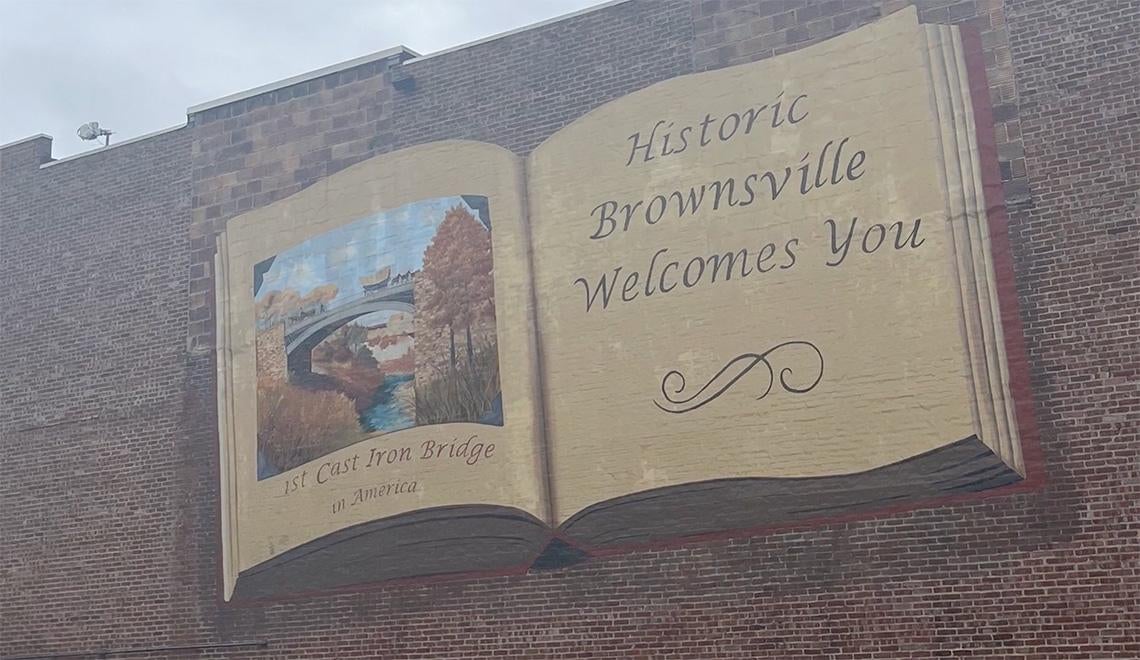
Subscribe to Pittwire Today
Get the most interesting and important stories from the University of Pittsburgh.Each year at the Community Engaged Scholarship Forum (CESF), Pitt elevates and reflects on collective approaches to community-engaged scholarship at the University by providing an opportunity for faculty, staff and community members to present their community-engaged work, discover new avenues of partnership and network with those who do similar work.
The forum also celebrates students, faculty and staff who have significantly impacted their communities.
The March 5 forum, themed “Beyond a Thousand Points of Light,” featured a full day of speakers and workshops, including keynote speaker Erin McDonald, the lead for the federal plan for equitable long-term recovery and resilience in the Office of the Assistant Secretary of Health, and plenary speaker James Huguley, associate professor in the School of Social Work. A deans panel featured School of Health and Rehabilitation Sciences Dean Anthony Delitto, Bettye J. and Ralph E. Bailey Dean of the Kenneth P. Dietrich School of Arts and Sciences and College of General Studies Adam Leibovich, School of Public Health Dean Maureen Lichtveld and Graduate School of Public and International Affairs Dean Carissa Slotterback.
Here are the winners of this year’s annual awards:
Tracy Soska and John Wilds Outreach and Engagement Leadership Award
Kelsey Voltz-Poremba, assistant professor in the Department of Occupational Therapy in the School of Health and Rehabilitation Sciences (SHRS), won for her outstanding work in building and promoting the community-based work the school is doing at the SHRS Wellness Pavilion, part of Pitt’s Community Engagement Center in Homewood.
CESF Collaboration Champion Award
Aliya Durham, assistant professor and director of community engagement in the School of Social Work, was honored for her more than 25 years of service to others — both as an employee and a volunteer — and her deep commitment to servant leadership, community development, equity and philanthropy.
Partnerships of Distinction Awards
These awards recognize outstanding partnerships that are exemplars of community engagement. Honorees demonstrate reciprocity, mutual benefit and significant community impact. Each winner receives a $2,000 grant.
The 2024 Partnerships of Distinction awardees are:

Appalachian Bridges to the Future: Resilience in Fayette County
The primary objective of this partnership is to unite Pitt faculty via the David C. Frederick Honors College with the Fayette County Cultural Trust (FCCT) to assess and begin to address the causes and consequences of outmigration of higher educated and skilled individuals from Fayette County, an economically distressed area of Pennsylvania located about an hour’s drive from the University’s Pittsburgh campus. Central to this goal is creating a lasting positive relationship with the FCCT and other community stakeholders to provide research and programmatic support to the residents of Fayette County while also addressing central research topics and providing an opportunity for undergraduate students to engage in ethical community-based research.

Grace Lamsam Pharmacy Program
For over two decades, the Grace Lamsam Pharmacy Program (GLPP) in Pitt’s School of Pharmacy has been a beacon of compassion, delivering pharmacy services to the most vulnerable populations in the Pittsburgh region — those experiencing homelessness, the working poor, the underinsured and the uninsured. Rooted in the belief that every person deserves quality health care and medications delivered with dignity, the GLPP has made it its duty to make this care available whenever possible.

Congregations as Healers United to Restore Community Health (CHURCH)
The CHURCH project is a Community-Partnered Participatory Research (CPPR) project in which Pitt researchers collaborate with African American faith leaders in Homewood, Pennsylvania, to develop, implement and evaluate a mental health training curriculum that can be delivered in Black churches. The training includes four 90-minute training modules based on cognitive behavioral therapy principles, which have been culturally tailored by incorporating spirituality and African American sacred music through collaboration with African American clergy and local Black church musicians. The training seeks to increase faith leaders’ mental health knowledge and self-efficacy in educating congregational members about evidence-based strategies to manage mental distress resulting from daily stressors.


